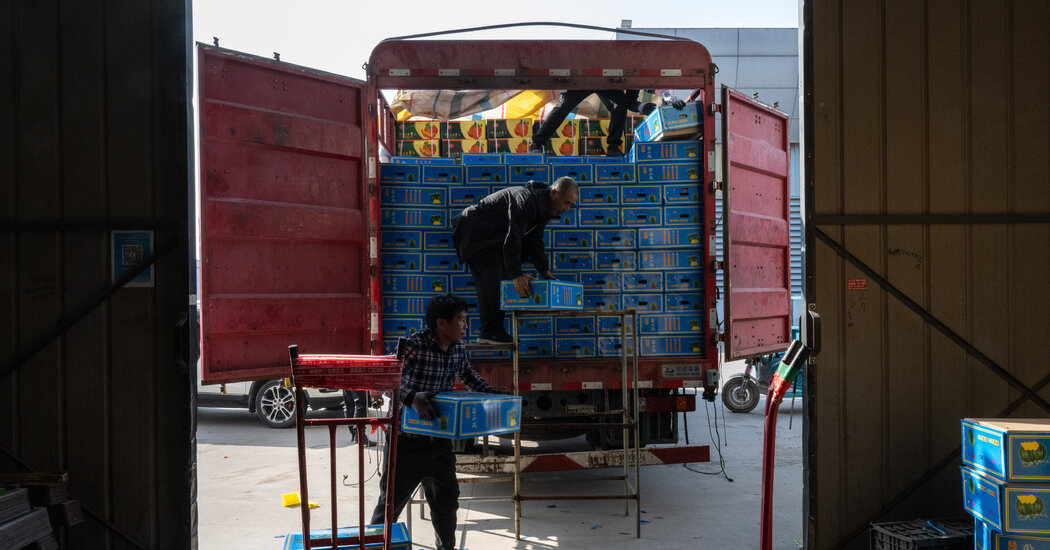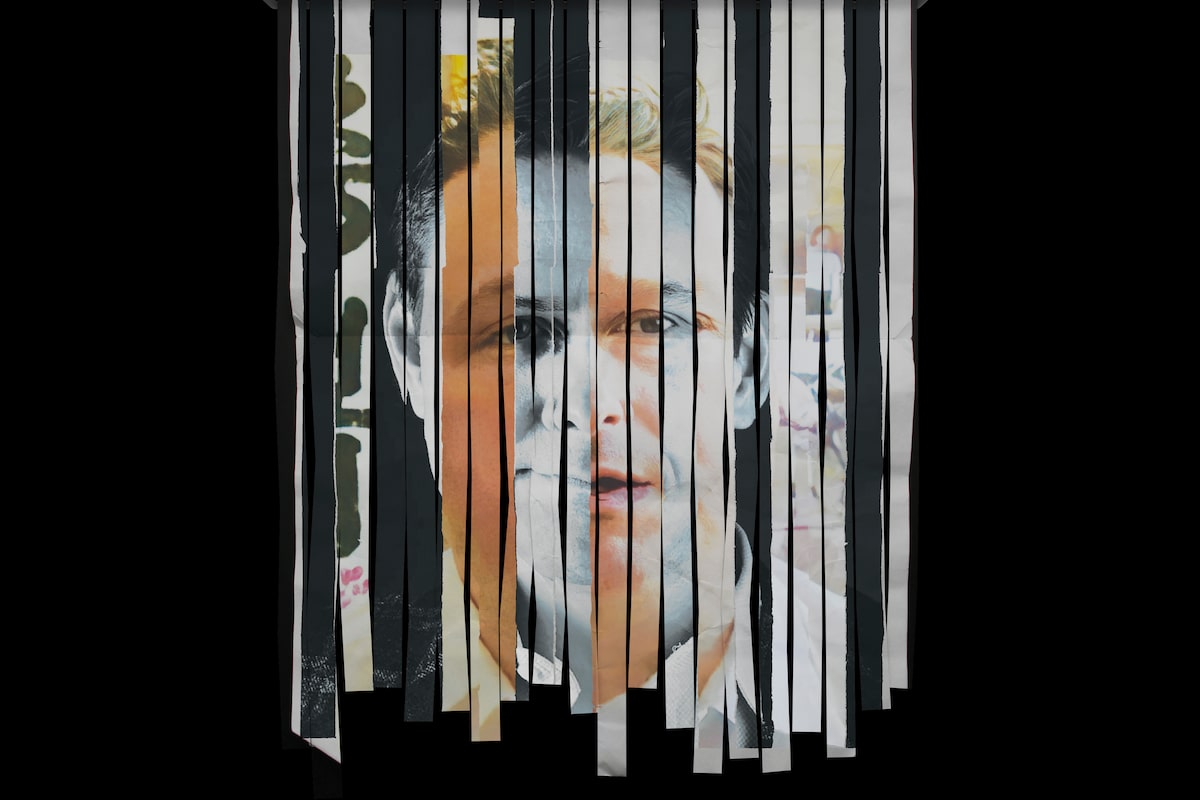More Semiconductors, Less Housing: China’s New Economic Plan
Policymakers, wary of inciting reckless borrowing in real estate, are instead investing heavily in factories and trying to help indebted local governments.China’s Stalling Economy
- What to Know: China’s economy, which once seemed unstoppable, is plagued by a series of problems, and a growing lack of faith in the future.
- Real Estate Crisis: Country Garden and Evergrande, two of China’s largest developers, are at the center of the spiraling property crisis that has shaken the country’s economy.
- A Worrying Sign: Prices are falling again in China after a two-month reprieve, renewing fears that the country is on the cusp of a pernicious economic condition called deflation.
- Beijing’s New Plan: China’s political leaders, under pressure to support the country’s fragile recovery, are slowly steering the economy on a new course that calls for investing heavily in manufacturing.
For the first time since 2005, when comparable record keeping in China began, banks controlled by the state have started a sustained reduction in real estate lending, data released last week showed. Enormous sums are instead being channeled to manufacturers, particularly in fast-growing industries like electric cars and semiconductors.
There are risks to the approach. China has a chronic oversupply of factories, well more than it needs for its domestic market. A greater emphasis on manufacturing will probably lead to more exports, an increase that could antagonize China’s trading partners. China’s extra lending also poses a challenge for the West, which is trying to foster extra investment in some of the same industries through legislation like the Biden administration’s Inflation Reduction Act.
The shift to manufacturing loans underlines Beijing’s reluctance to bail out China’s debt-burdened property market. Construction and housing account for about a quarter of the economy and are now suffering from steep declines in prices, sales and investment.
China’s investment push might stir more growth in the coming months, partly offsetting troubles in the housing sector. But more central government borrowing, as a replacement for local borrowing, will do little to defuse the long-term drag on growth caused by accumulating debt.
“I don’t think there is a problem for short-term development, but we have to be concerned about medium and long-term development,” Ding Shuang, the chief economist for China at Standard Chartered, said at a recent forum of Chinese economists and finance experts in Guangzhou. “It’s fair to say real estate is not at a floor.”
China’s housing crisis has its roots in four decades of debt-fueled speculation that drove prices to levels far above what could normally be justified by rents or household incomes. China’s policymakers triggered the sector’s recent decline by starting to rein in lending several years ago, and now are reluctant to rescue the sector by kicking off another binge of housing loans.
The government believed that China’s economy would snap back in 2023 after the country’s leaders lifted most “zero Covid” restrictions that quashed the economy last year. But after an initial burst of activity, growth lagged in the spring and summer. Vulnerabilities remain: Manufacturing activity stumbled again last month, after showing growth in August and September.
Last week, at a conference presided over by Xi Jinping, China’s top leader, Communist Party and government officials met in private to discuss finance policy. According to an official statement afterward, the conference ordered that more financial resources be channeled to advanced manufacturing industries, as well as assistance to local governments.
China has already built enough solar panel factories to supply the entire world’s needs. It has built enough auto factories to make every car sold in China, Europe and the United States. And by the end of 2024, China will have built in just five years as many petrochemical factories as all of those now running in Europe plus Japan and South Korea.
Economists at the recent gathering in Guangzhou, held by the International Finance Forum, a Chinese think tank, acknowledged that the country faced challenges not encountered since the years immediately after Mao’s death in 1976. But they predicted that big investments in new manufacturing technologies would pay off.
“Today we have comparable difficulties as 1978, so the question now is what will be the future of innovation-driven growth?” said Zhang Yansheng, a former senior official in the central government’s economic planning agency who is now at the China Center for International Economic Exchanges.
The China banking system’s switch from real estate loans to manufacturing started several years ago, Bert Hofman, the director of the East Asian Institute at the National University of Singapore, said at the Guangzhou event.
Before the pandemic, China’s banks were increasing their lending to real estate by more than $700 billion a year. In the 12 months through September, the total loans outstanding to real estate fell slightly. Banks lent less to developers, and households paid off old mortgages while taking out fewer new ones.
By comparison, net lending to industrial companies skyrocketed from $63 billion in the first nine months of 2019 to $680 billion in the first nine months of this year. That money has gone partly toward building a semiconductor industry that may allow China to wean itself from imports and bypass American export controls, as well as toward categories like electric car manufacturing and shipbuilding.
Many economists have expressed concern that throwing more money at manufacturing might not fix the broader economy. The real estate sector is still decaying and is so large that offsetting its troubles with growth in industries like car manufacturing, which is 6 to 7 percent of economic output, won’t be easy.
The factory construction splurge threatens to antagonize other countries: Much of the additional output is likely to be exported because many Chinese households have curtailed spending.
But the United States and the European Union have become less willing to accept further increases in their trade deficits with China. The European Union is already investigating the use of government subsidies by China’s electric vehicle industry, opening a new trade rift between Brussels and Beijing.
Aware of these risks, China is wooing developing countries. These countries still have sizable but often aging manufacturing sectors that provide an opening for exports from newly built, highly efficient factories in China. Many developing countries are struggling to renegotiate large debts owed to Beijing for infrastructure projects, which puts them in a weak position to raise tariffs on Chinese goods.
China’s factories have been gaining dominance for decades. The country’s share of global manufacturing has grown nearly five times, to 31 percent, since 2000, according to data from the United Nations Industrial Development Organization. The United States’ share has tumbled to 16 percent, while the share of developing countries not including China has stayed level at 19 percent.
Of course, one thing isn’t changing in China’s approach: its reliance on borrowing to fuel growth.
Officials have tried repeatedly for years to tame its debt addiction. Liu He, a vice premier, promised in a speech in 2018 that it would happen within three years.
Instead, local government debt has surged since 2020, reaching nearly $8 trillion last year, and the semi-independent borrowing units of local governments have accumulated trillions of dollars more in loans. China’s overall debt has ballooned until it is considerably larger, relative to the country’s economic output, than debt in the United States and many other developed countries.
Yao Yang, the director of the National School of Development at Peking University, said in September that debt control efforts had not succeeded. “Between 2014 and 2018, which should have been a window for defusing debt, the debt skyrocketed; the situation became worse after 2020,” he said in a speech. “This indicates that previous debt-defusing measures were ineffective and, in some cases, counterproductive.”

More Semiconductors, Less Housing: China’s New Economic Plan
Policymakers, wary of inciting reckless borrowing in real estate, are instead investing heavily in factories and trying to help indebted local governments.












